To the Wonder
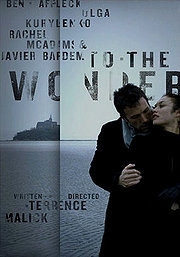
To the Wonder, like Tree of Life, is an hypnotic film. Shots linger on the shores of deserted beaches focusing on the intricate movements of the water into the crevices of the shivering sand. Dialogue is minimal for the most part, and when it is not it is delivered in breathy French by Olga Kurylenko, or deep Spanish by Javier Bardem. Frame after frame seems to ache in the beauty of sunset golds and cold blues as colour becomes a third or fourth character, conveying effortlessly the mood demanded or the feeling interpreted by the images.
Plot-wise, the film is relatively easy to sum up. Neil (Affleck) and Marina (Kurylenko) are in a playful yet tender relationship in France at the beginning of the film. When we first encounter them, they are (depending on the shot) either in Paris, on a train or visiting a seaside medieval church somewhere along the cold northern coastline. We see them gazing at each other and then their surroundings, seemingly rapt between their interior minds and without. A third person, Tatiana (Tatiana Chilline) is Marina’s very young daughter, and in Paris she asks Neil if he will marry her mother. He doesn’t answer.
Then the film takes us to America. Somewhere in the mid-west, a place of new-build suburban housing on the edge of a town dominated by roads and cars live the little family. They are surrounded by grasslands stretching far into the distance until the horizon melts into the sky. This is a place of industry, and we gather that Neil’s job is to assess what kind of damage is being done to the land, water and soil of the area by the unspecific industrial activities going on in the area. Father Quintana (Bardem) is also making an assessment in the area, but his task is to discover what the people are doing to each other, and to try to make it better.
Initially, Marina, Neil and Tatiana seem to be doing well. They are a very physical family, especially Marina – dancing, skipping and crawling wherever she happens to be. There are scenes of the three of them in a huge supermarket eagerly taking in the wonder of the vast amount of stuff there to be consumed. They swim a lot. Soon, however, doubt and darkness creep in (thanks to the downbeat change in the orchestral music and the gradual but definite change in lighting we are unable not to notice). Father Quintana’s voice-over starts focusing on the necessity of facing problems, and Tatiana tells her mother that something is not right.
Neil will not marry Marina, and her visa has run out. Mother and daughter have to leave. And just like that, all the seemingly transcendent longing gazes, playful physicality and joyous and painful exuberance is cut short, the plane flies to Europe and Neil is left alone in his empty suburban house. There is much silence. Father Quintana hasn’t gone away though, and for a while the film’s focus shifts to his pastoral duties amongst the underclass whose exclusion from society seems to be one of the film’s concerns. The jittery camera zooms in on the faces of the deprived, the physical scars of their unjust treatment strangely melt into the schema of natural and social wonder the film manages to create with its rapid editing and seemingly effortless barrage on the visual and auditory senses.
So what does it all mean? A very good question. I could have a stab at it and say that I think what Malick is doing is making a bold and laudable attempt to make the natural wonders around us as important in his film as the people depicted. I could say that there are concerns of some kind articulated about the inevitability of death and our inability to accept that everything must end. Similarly, the film seems to be distressed about the damage humanity is doing to itself and nature today by consuming more than all previous generations of humans on the earth combined. Or I could say that To the Wonder wants to draw our attention to the spiritual possibilities of silence and staring. An hour after seeing it, I still feel grateful to Terrance Malick for serving up such a stunning series of delicious and awful (in the sense of full of awe, obviously) images. But after writing all of the above I am even more confused than I was before I started writing about it.
Depending on your mood, To the Wonder will either be just what you want in a film after a hard day – one that is completely unlike your experience of everyday life and yet draws your attention to the strangeness of normal experience; or it will be an incomprehensible two hours of inaccessible pretention with possibly a dangerous mix of God-squad portentous certainties thrown in. I’d recommend approaching this film as you would a good view: take in as much as you can and just let it wash your mind to a condition of ease. Don’t think too much about it. Try not to.

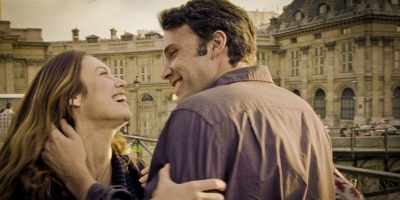
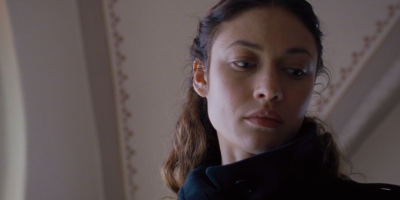
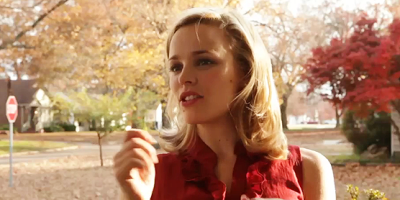
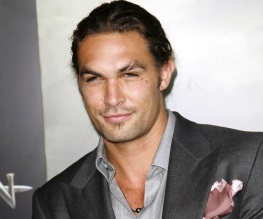
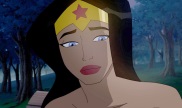

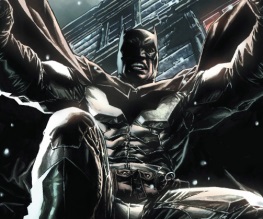
Recent Comments